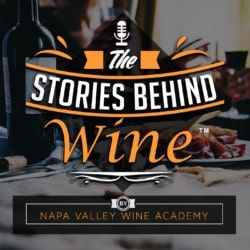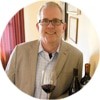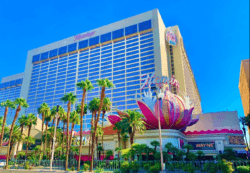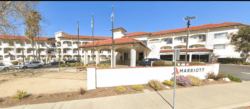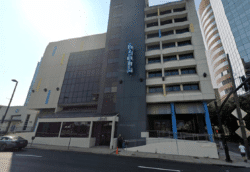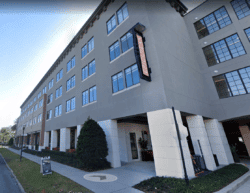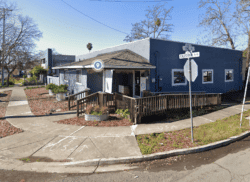In Episode 18, we sit down with Peter Mondavi, Jr. of Charles Krug Winery,
In this episode, Christian Oggenfuss has the opportunity to sit down with Peter Mondavi, Jr. of Charles Krug Winery. Christian explores Charles Krug and the Mondavi family’s rich and fascinating history and influences shaping the Napa Valley. This is their story.
00:00 Christian: If you could tell me your name and what you do in the wine business?
00:02 Peter Mondavi Jr: So, I’m Peter Mondavi Jr, co-proprietor at Charles Krug Winery. That’s pretty much the span of my entire professional career. I’m a board of director there and ambassador for the Charles Krug Winery as well.
00:16 Christian: Great. Well, thanks for coming on the show today, I’m excited to talk with you. I’d love to dig a little bit into the family history and maybe even go a little bit further back into the history of Charles Krug himself. Your family’s winery, Charles Krug, is now in its third century. Can you tell me a little bit about how it got started? And I also know that it’s the oldest winery in Napa Valley. Tell me a little bit about Charles Krug.
00:40 PETER MONDAVI, JR.: Yeah, of course, it, as you referenced, dates back to the early 19th century. Charles Krug was a Prussian immigrant, obviously born and raised in Prussia, very well-educated, but not as a vintner, he was educated as a journalist. In fact, as he was growing up and got into his professional career, he was a bit of a radical journalist, and this is the mid-1800s, and he got thrown in jail for speaking out against the government at that point. Once he did get out, he ultimately made his way to the United States, and then San Francisco, where he had a variety of jobs, one of which, he was the editor for the German-language newspaper servicing the West Coast. He also had a job at the US Mint, when there was a mint in the San Francisco area. So he did a variety of jobs and met a number of people, of course, along the way.
01:32 PETER MONDAVI, JR.: Some of these people had small vineyards on their properties, making basically homemade wine at that point, and he got introduced to this concept of home winemaking and fell in love with it, and at the same time, fell in love with Carolina Bale. Now, the reason that is significant is her family was a very prominent family in Northern California. So when the couple were married in December of 1860, her parents gave the couple a dowry of about 540 acres of land right in the heart of Napa Valley. So Charles Krug pursued his love of winemaking, and at that point, the following year, 1861, founded the Charles Krug Winery on that 540 acres of land, actually, not only in the heart of Napa Valley, but in St. Helena as well, it’s there, so making it today the oldest winery in Napa Valley.
02:26 PETER MONDAVI, JR.: And Charles Krug was very influential in developing the Napa Valley wine industry. As an example, Jacob Beringer worked in the cellar, actually worked as a winemaker for Charles Krug, and then went across the street, literally, to start Beringer Winery. Jacob Schram worked in the cellars as well, for Charles Krug, and then moved north, just a couple of miles, and started a Schramsberg. One of the Wente brothers worked in the cellar as well, and then moved south, a couple-hour drive down to Livermore and started Wente Winery. So very influential in the Napa Valley and California wine industry back in the 1800s.
03:08 Christian: So like a winery incubator, if you will, right?
03:11 PETER MONDAVI, JR.: Yes, absolutely.
03:12 Christian: The originator. So what kinda commercial enterprise was it? Was it making wines to sell commercially, locally, to San Francisco? Can you talk a little bit about what kind of commercial enterprise it was?
03:25 PETER MONDAVI, JR.: Actually, it was a good size back in that day. I can’t tell you the exact gallonage or number of cases, but from what I recall, the newspaper clippings there, there’s a substantial amount of storage capacity, which is how they really measured wineries. He produced wines not only for local consumption, but national and international consumption. He actually had… Because he had contacts overseas, I believe he was entering in some of the overseas wine judgings, things like that, at that time, and getting some recognition then. So, to a certain degree, it had an international footprint, but I think it was pretty minimal from the international side.
04:06 Christian: It’s at a time, too, when the Valley was… Is considered its first boom, right? Where, as you mentioned, all of the seminal names, Schramsberg, you mentioned Beringer as well, what happened leading into the 20th century and pre-prohibition?
04:18 PETER MONDAVI, JR.: Yeah, pre-prohibition, there were quite a few wineries in Napa Valley. It was very vibrant from a viticultural standpoint and winemaking standpoint. Charles Krug did pass away early 1890s, so at that point, he was outta the picture. But before that, he was actually the first agricultural commissioner in the area representing wine grapes for the state in California. And when prohibition set in, it pretty much obviously closed down almost all the wine production in Napa Valley and California. There were a number of wineries that continued to operate, a small number, producing wines for supposedly medicinal purposes and for the churches as well. Charles Krug was not one of those wineries, it was shut down during that period.
05:11 Christian: Okay. So it became essentially a ghost winery?
05:14 PETER MONDAVI, JR.: Yeah, I guess so. I don’t know if there was any activity whatsoever, if there was any storage use there from other neighboring wineries, it could have been, but we don’t have specific details of that.
05:26 Christian: If we fast-forward to the 1940s, the early 1940s, your family enters the picture, I think with your grandfather, is that correct?
05:34 PETER MONDAVI, JR.: Yeah, my grandparents purchasing the Charles Krug Winery in 1943.
05:38 Christian: Okay. What were they doing before that time, before entering the wine scene in Napa Valley?
05:43 PETER MONDAVI, JR.: A little bit of history on my family, my family has no background whatsoever in the wine business. My grandparents came from Italy, 1908, right after they got married, more or less sharecroppers, peasant status, came over with a handful of dollars in their pocket and nothing else. But they landed in, of course, Ellis Island is how they emigrated through, but went immediately up to Northern Minnesota to the Iron Range because family and friends already were living there and sponsored the couple to come into the United States. And my grandfather briefly toiled in the iron mines, didn’t like that, and really turned into quite an entrepreneur, he started a saloon with a partner. My grandmother was operating, managing a boarding house for about 18 Italian miners or laborers up there. And then, of course, prohibition set in around 1920, the saloon business was not the business to be in. He then transitioned into the grocery store business and dealing in fruits and vegetables, the very tight-knit Italian community in the area circled around him and said, “Hey, go to California, get us some wine grapes so we can make home-made wine.”
06:57 PETER MONDAVI, JR.: And it occurs in the middle of prohibition, which was legal. And so that’s really the first indirect introduction of my family into the wine business. So my grandfather went to California around 1820, took the train out, secured grapes, shipped them back and sold them to the locals to make wine. As an entrepreneur, he saw the potential of this and moved his family out to California in 1922 and developed a very vibrant grape-shipping business. Zinfandel is the main variety, Alicante was another one, Carignan was another variety that were shipped back east, and it afforded them the opportunity to purchase a Charles Krug Winery in 1943. So that’s how we get from Italy to owning a winery.
07:42 Christian: Wow, that is quite a seminal story for a lot of Americans, right? A lot of Italian-Americans coming in and being entrepreneurs and forging a path in the wine business. What did Napa Valley look like back in the ’40s when your grandfather purchased the winery?
07:57 PETER MONDAVI, JR.: Of course, I was not there at the time but I do hear stories. Very, very rural, very agriculturally diverse. It really wasn’t until the… God, I think the 1960s or 1970s when wine grapes became the major agricultural commodity within Napa Valley. Before that it was a very diverse find. Plums, there was a lot of prune-drying facilities there, cattle, dairy was big. Just a number of places. I remember a story from my mom. Years ago, Mom and Dad were engaged, and my Mom actually grew up in Sacramento, and one of her friends made a comment and says, “Why do you wanna go to Napa Valley? That is just a [08:43] ____ place with nothing, no culture there.” So it has changed quite dramatically. Even when I was growing up, we lived in the town of St Helena.
08:56 PETER MONDAVI, JR.: The winery also located in St Helena but probably, Oh, I don’t know, about a three-mile drive from our house to the winery itself. We used to have a dog that would, it’s name was Fritz, would commute, literally walk or run between the winery and the house every day across Highway 29. It did this for I don’t know how many years and survived. Today an animal crossing a road wouldn’t survive a day. Just to show you how much more traffic there is today.
09:27 Christian: Maybe you can give us some insight into why it’s still called Charles Krug Winery and not Cesare Mondavi or Mondavi Winery.
09:35 PETER MONDAVI, JR.: My opinion is there was some debate or discussion on that with the family, ’cause when they bought it, as my grandfather, Cesare, my uncle, Robert, my dad, Peter of course. He was on leave from World War II, and they met with the owners in San Francisco to seal the deal. But it’s my understanding there were some discussions… Do we call it… Use the family name or do we stick with Charles Krug. And that point the family name really had no relevance in the business, it was an unknown at that point. Charles Krug had a rich history and some recognition out there. So that’s why the decision was made to continue with the Charles Krug name.
10:14 Christian: Cabernet Sauvignon obviously wasn’t king in Napa Valley back in the ’40s right? There were other grapes that were important.
10:21 PETER MONDAVI, JR.: Quite a few others. Cabernet was produced, but there’s many, many others. And basically, what was planted… And this went on until probably into the 1970s. What was planted was what was in demand, it was irrespective to the terroir, the soils, exposure, anything. As an example, back in the ’60s, Chenin Blanc was quite popular. And Dad had some property back then, well, still have the same one in Slinson, which today is one of our prized, best Cabernet vineyard properties. But Dad had needed Chenin Blanc, so he just planted Chenin Blanc in there. But anything and everything, Gamay, and Petit Sirah, Carignan, Gamay Beaujolais, Riesling, Johannisberger Riesling, Grey Riesling, the list can just go on and on. And it’s truly what the consumers were demanding. And there was a pretty eclectic, broad selection of wines. It really wasn’t a single one that unlike today that would dominate.
11:29 Christian: Who was making the wines back then? Was it your father, was it Robert or was Cesare the principal winemaker?
11:35 PETER MONDAVI, JR.: No, actually it was my dad. He did all the winemaking, Robert did more of the sales, business side. Cesare was at a distance, he actually lived… His primary residence was in Lodi, which was in Central Valley, California, where they settled when they came in from Minnesota in 1922. But he would oversee, make sure nothing was going astray. But, really, it was Robert and Dad, and Dad was solely responsible for making all the wines.
12:03 Christian: So, obviously, a lot of stories you hear about the Mondavi family, to start off with, something that happened in the 1960s between your father Peter and Robert. A lot has been talked about, a lot of stories have been told about it. But it’d be great to hear your perspective on what led up to the split of the two Mondavi brothers, and if you could give us a little bit of history on that.
12:26 PETER MONDAVI, JR.: Yeah, sure, I’d love to enlighten you on that one. So basically, it boils down to a philosophical difference in business, and priorities within the business. The main priority for part of the family, and Dad was called spokesperson for part of the family, was family was first, 100% family business, 100% family ownership of the business and control was preeminent. Robert believed in that, but Robert wanted to expand and grow faster than just the organic growth would allow being 100% family-owned. So that was really the split as we could not grow at the rate Robert wanted to and remain family-owned. You needed outside money, outside capital. So that’s really the crux of the split. They’re both pursuing high-quality wines, especially Dad perfecting the quality, doing a tremendous amount of research in Napa Valley as far as wine making techniques and procedures, processes to improve the quality. And ultimately, if we fast-forward to today, we remain 100% family-owned, now I’m the fourth generation, so consistent with our family values and directions.
13:48 PETER MONDAVI, JR.: Robert built a very impressive empire with Robert Mondavi Winery, not only locally, but really internationally. But he did go public, he had partners for most of this time, but then he went public to continue to fuel the growth, and then ultimately because of being public and losing control via that venue, the winery was ultimately sold in 2004. So he was extremely successful in his own right in building that empire; and we’re successful in our own right as well as a very successful family-owned business.
14:23 Christian: Yeah, well, speaking of family-owned business, just for the listeners, that is not the case anymore in Napa Valley, right? There are only a handful of family-owned businesses, wineries, and not many that have the pedigree and history that yours does. Can you talk a little bit about that, how that landscape has changed?
14:41 PETER MONDAVI, JR.: Well, it’s changed dramatically. When my grandparents got involved in the business in 1943, even up until… Let’s see, Robert started his winery in 1966, and I believe it was the first new, bonded winery since repeal. Up to that point, there were literally about a dozen wineries in Napa Valley, we know Charles Krug, Louis Martini, and Christian Brothers, which is no longer Beringer brothers, Martini, Inglenook, basically that was it. And most of those have been bought and sold and changed hands. And then starting in the late ’60s, into the ’70s and on, there was a very robust development and founding of wineries, and today there’s probably about 500 wineries in Napa Valley. Many of them, very small, many of them family-owned, but also quite a number of them have been sold as well. Very prominent ones have been sold for a variety of reasons, but if you really look at the history and those of us who’ve been in it since, call it the World War II era, post World War II era, there’s only a couple other wineries that are still family-owned from that era, the rest of them have been either closed or bought, sold. The landscape has changed very dramatically.
16:01 Christian: That’s pretty impressive. Typically, when you look at family businesses, the first generation builds it, the second generation profits from it, and the third generation, usually trouble ensues and business struggles. What’s been the recipe for your family success? You’re in the fourth generation now, you’re thriving. Talk to us a little bit about what has the family philosophy been to make that happen.
16:24 PETER MONDAVI, JR.: First and foremost, and it goes back to what I discussed earlier, is we wanna maintain 100% family ownership, 100% family control in the winery. So that is the one that… A unifying factor for the family. And the fourth generation are starting to get engaged, involved in the winery. In fact, we have two members of the fourth generation that sit on our board as well. And really, everybody shares… The fourth generation shares a love for the wine business. They all grew up here all playing around in the vineyards, in the winery, it’s really part of our DNA, and it is a pretty wonderful business to be in. And I think for those reasons, it continues to be carried on.
17:11 Christian: Not to rewind again too far, but just if we pick up the story of your father, Peter, and Robert’s split, that was quite a dramatic thing, splitting the family in two, and I think that that split remained for quite some time. What do you think your generation has learned from that, that you’ve been able to overcome history repeating itself with the third generation or the fourth generation?
17:35 PETER MONDAVI, JR.: Well, the third generation, I’m part of the third generation, we’re not driving the split or anything, but we’re embroiled in all of it and the emotional aspect of it. And I think we all independently committed that we didn’t wanna repeat what we saw our parents going through. So I think that’s an important aspect of it. And also acknowledging our love for the business. And if you look at all the family members, the third generation, Robert’s kids, Tim, Michael, Marcy, and then us, everybody is involved in the wine business one way or another. We may not be financially tied together, but we all have this overwhelming love for the business. And so, really, everybody continues to be involved with it, even Robert’s side, when they sold their winery, their kids went off and developed other wine-related adventures.
18:35 Christian: If we move on, and fast-forward to ’76, obviously, the Paris Tasting, The Sip Heard Round the World that helped establish Napa as one of the premier wine growing regions on the planet today. How did Napa Valley change at that time?
18:50 PETER MONDAVI, JR.: Literally overnight, Napa Valley just became… Came on to the international scene when it came to wines, the quality of wines, California wines, US wines, for that matter, I think, we’re struggling on the international scene because prior wines had been of relatively low quality. So that’s what the international market was introduced to, is fairly low quality, generic, everyday wines. And that’s a reputation that California and Napa Valley had to overcome. And this tasting in 1976 in Paris was a huge turning point for it. And there was very high-quality wine being made in Napa Valley well before that, but this gave it the international recognition and the ability to stand toe to toe with, really, our Bordeaux counterparts.
19:53 Christian: How did it change Charles Krug Winery? Was that also a turning point for your family’s business?
19:58 PETER MONDAVI, JR.: The turning point was… It was probably more of an evolution as opposed to a discrete point in time when things changed, and that was the beginning, I think, where we were starting to look closer to what varieties were planted in our properties, and we didn’t really make wholesale changes until into the ’80s, prompted by the phylloxera that came in and devastated many wineries, and the age of our vineyards, too, dictating a change. And that’s really when we made our changes to focus more into the Bordeaux varietals, and I’m not mentioning in style, but varietals, Cabernet, and Merlot, Sauvignon Blanc, the varieties that are common with Bordeaux, because we then learned, over the time, and prompted by the ’76 tasting, how well these varieties do in our area. And now fast-forward to today, and Cabernet and related varieties, Bordeaux reds just absolutely dominate Napa Valley.
21:01 Christian: So, I love to delve a little bit into your history, so obviously being born into one of the preeminent wine families of Napa Valley, with that must come some pressure and some expectations to be involved in the wine business. Did you always know you wanted to be involved in the family business or did you go off exploring and arrive at that decision later? Talk to us a little bit about that.
21:23 PETER MONDAVI, JR.: Yeah, it was never explicit. Looking back, there was prior implications to get into it, but as our kids, I grew up in and around the wine business, I would say, the art of… Let’s call it more art winery. Summer jobs, working at the winery, whether it’s in the lab or in the cellar or in the vineyards, being exposed to all kinds of different areas. I started, I think my… I think I was eight years old when I first started, and I did four hours a day in just very odd jobs at that point, but we spent a lot of time… Like our Easter celebrations were on the property, and when it would rain we actually moved into like the barrel cellar, they have Easter [22:05] ____ barrel cellar. But after college, I pursued my love, my strength, which is more in the technical side, so yeah, I have a degree in… A master’s degree in engineering as well, but the love for the wine business pulled me back in, and immediately came back to the business, ’cause as I mentioned earlier, it’s a fun business to be in, a lot of people are interested in it, it has many nuances to it, it’s as much science as it is art form, when it pertains to Napa Valley type wines. Yeah, so that’s how I got involved in with the business.
22:41 Christian: As an engineer, you have a highly technical skill, have you been able to leverage that degree in to benefit in the wine business?
22:49 PETER MONDAVI, JR.: Oh yeah, in a number of ways. We were doing a construction project when I got outta school, and so I helped my dad in that one, I designed some engineering systems, part of which was our temperature-moderating control system, which was very important for the fermentation. And what’s interesting is my dad, when he went to college, it was back in 1938 or so, he did some research on the effects of the temperatures during the fermentation process. Warmer temperatures, cooler temperatures, and what was the impact on the quality of the wine? And he determined and demonstrated that cooler temperatures for white wine fermentations yielded a higher quality white wine, fresher, more vibrant, more expressive. So today, that’s really a worldwide standard, so the temperature control system just really built upon Dad’s research, and it took one aspect of winemaking that you can control very well, and with the advent of computers and all the technology coming out at that point, put in a very robust system to maintain good temperatures, especially on the white wines during fermentation. So that’s just an example of how it works, and that’s more of the science side of it, as opposed to the art-form side of it.
24:16 Christian: So it must be rewinding a little bit to your youth and growing up, and for the listeners who’ve never visited Charles Krug Winery, it is a magical place. It’s across from the CIA Greystone, which in itself is a beautiful stone building, you have the barrel barn, which you recently redid and beautiful property. What was it like as a kid running around there, was it… Most people will think of a movie set or A Walk in the Clouds, something magical. Was it that? Was it magical growing up there?
24:44 PETER MONDAVI, JR.: It was very magical, I think, totally different than some of the movie sets you see. In fact, it’s not even, as you mentioned, A Walk in the Clouds, part of what’s actually filmed in our winery, so you could see their interpretation of… But no, we would play in the vineyards when our workers were out there on the vineyards with my great uncle, he would manage the crews there for the viticultural side of things, they would break for lunch or whatever, and they’d gather up there, some of their prunings and make a small little fire and cook up their tortillas and lunch. And we’d go out there, my brother Mark and I would share it with them in the vineyards, just some of the fun stuff like that that we did, and I tried at home with making homemade wine, just to see what this thing is all about.
25:29 PETER MONDAVI, JR.: And going to school, this is in the old days, no internet, things like that. And so you truly lived in a little bubble here in Napa Valley. And most of our friends, family were tied in with wineries, they worked at wineries, they managed wineries, that is, some of them owned wineries. I grew up with the Cornells, the Heitzes, things like that. It’s like, “Well, that’s what the world is,” because we were in a bubble like that. And didn’t really think that much about it at that point.
26:04 Christian: You have a brother. Do you have any other sisters? How many siblings do you have?
26:07 PETER MONDAVI, JR.: A sister as well, she was not involved with the business. She’s an older sister.
26:12 Christian: So you and your brother now are both active in the winery?
26:16 PETER MONDAVI, JR.: Yeah, well, we’ve been active [26:17] ____ all of our life. Now we’ve evolved, we both sit on the board. Both active as ambassadors, and really dealing more in the strategic, long-term aspect of the winery, we don’t deal in the day-to-day aspects of the winery. We however do interface with our winemaker, ’cause that’s an important expression of the family and to make sure we’re all on the same page.
26:43 Christian: Did either of you ever have like the desire to be winemakers or have that active-role participation in the day-to-day, or are you happy how it is now?
26:51 PETER MONDAVI, JR.: We’ve lived through that, we’ve had that experience, both of us, but really happy to be removed from the day-to-day headaches that are also associated in that capacity. But working with Stacy, our winemaker, interacting with her, having discussions on wines, wine styles, weather, is wonderful, enriching, but I think glad not to be saddled with the day-to-day headaches that come along with great winemaking.
27:20 Christian: So you had mentioned you are in the fourth generation now. Paint us a little picture of what does the fourth generation look like and who makes up the fourth generation?
27:28 PETER MONDAVI, JR.: Yeah, so the fourth generation, Mark and his wife, Janice, have four daughters. They’re the oldest of the fourth generation of our group because Mark’s four years older than I am. So briefly, through their family, Angelina is the oldest. She is actually the only formally trained winemaker of that generation in our family. She actually has a master’s out of the University of Adelaide in winemaking. She is actually consulting for a number of small brands in Napa Valley and outside of Napa Valley. She does some consulting for us as well. Alycia is the next, and her three sisters have a couple of brands together, and she manages those, Angelina actually is the winemaker for those. So Alycia manages those. Riana is actually the only one of the fourth generation in our family that’s full-time on our portfolio, and she works in sales. And then Giovanna or Gigi, she’s the youngest of Mark and Janice’s four daughters, and she lives in Boston, works for a financial institution there. But all of them are acting as ambassadors, they’re knowledgeable about the winery, they’re engaged from that standpoint, and Angelina is actually on the board as well.
28:40 PETER MONDAVI, JR.: And then, our two kids, [28:41] ____ and I have… Our son graduated two years ago. He has actually followed in my footsteps, he has a master’s in engineering from the same university I went to. But he pursued his love, which we have a shared love here of automobiles. So he’s actually working in Italy, he’s a researcher… R&D engineer in vehicle dynamics for an auto company in Northern Italy, he lives in Bologna. And then our daughter graduated with a degree in applied math, and she just graduated last year, but she has a love for food, and so she’s working for a food-tech start-up in London right now. But because of the situation, she actually came home towards the end of March, and she’s been working remotely ever since, very successfully, actually, so I’m not sure when she’s gonna get back, but she does look forward to getting back. But both our kids… Our son is actually on the board as well, involved, engaged in the wine business, but not directly employed. But they’re definitely interested in it, ’cause they’ve been exposed really all their life growing up around the winery. And our kids grew up, as I did, on the winery property itself.
29:49 Christian: Well, it’s amazing, I mean, you’re being a little bit humble, both your son and yourself graduated from Stanford, if I’m correct, right?
29:55 PETER MONDAVI, JR.: Yeah, yeah, yeah.
29:57 Christian: So having a degree in engineering from Stanford is no small feat, and I think your daughter graduated from Harvard, if I’m not mistaken?
30:04 PETER MONDAVI, JR.: Yeah, yeah, correct.
30:05 Christian: Okay. So you must be immensely proud of all of your accomplishments in that regard.
30:10 PETER MONDAVI, JR.: Yes, yes, absolutely.
30:12 Christian: What do you see for the future for the winery? I mean, it is… There is Charles Krug Winery. And then there is C. Mondavi, I believe is another part of the business. Can you talk a little bit about the differences between those two, and what do you see as the future for your family business?
30:27 PETER MONDAVI, JR.: Yeah, so the future of our family business is that we’re [30:29] ____ in the past is remaining 100% family-owned and family-controlled, and residing in Napa Valley, that’s our home base, our home territory, where really most… All of our vineyard assets, our winery is located there. So you referred to C. Mondavi. C. Mondavi & Family is actually just the legal company name, and we do have… Which you don’t see on our front label, but we do have a couple… Our brand like CK Mondavi, it’s been around since the 1940s, a California, more popular-priced wine that we have out there as well. So we’ve been producing that for quite some time.
31:08 Christian: We’re obviously in the midst here of some world changes, covid has… We usually do these interviews face-to-face and in-person, and here we are doing it remotely, and you alluded to your daughter working successfully remotely right now. How has that changed the wine business for Napa in general? And how do you think that’s going to impact how Charles Krug does things differently? Or will Charles Krug be forced to do things differently?
31:36 PETER MONDAVI, JR.: A couple of things, or there’s quite many things, but first of all, wineries, wine production, vineyards, vineyard culture, are considered an essential business. So we continue to farm, we have no choice, the grapes continue to grow, they’re impervious to the coronavirus. But the cellars continue to operate, we’re still aging wine in barrels, we’re blending, bottling, if that comes up. So those operations continue. However, the hospitality side has completely… I wouldn’t say completely, but the experience that people have coming to the winery, that’s completely shut down. So some things we’ve done, so our hospitality side has really transitioned to online, so whether it’s through our website, we do a lot of virtual or Zoom tastings, FaceTime, a lot of FaceTime marketing, yeah, things like that. So we do a lot of virtual experiences where we reach out to our customers. So that’s a big change when it comes to the hospitality side of the business.
32:41 PETER MONDAVI, JR.: On the… It’s called the traditional three-tier system, where we’re selling to restaurants and fine-wine stores and grocery stores, the restaurant side of the business has all but gone away. I mean, drops like 95%, so it’s virtually non-existent today. That is a big impact for Napa Valley in general, ’cause many of the wineries in Napa Valley sell primarily through the restaurant channel. We’ve been around over 75 years now, so we grew up with a more traditional distribution system through the three-tier system, meaning through our distributors, and then we sell to restaurants, and then wine stores and others I mentioned before, so as well as a small percentage direct to consumer through our hospitality center, so we’re very well diversified.
33:35 PETER MONDAVI, JR.: So the impact on us has been… We felt it, but it’s not as devastating as it has been for other wineries that rely on the restaurant side. So it really reinforces our business model of being diversified with reference to the channels we sell through to consumers. If we were focused on one, let’s say restaurants only, which again, as I mentioned, a number of winers do restaurants primarily, that’ll be very tough, and I fear that as we get out of this situation, that restaurants will be some of the slowest to come back to the norms of what we were used to in the past.
34:22 Christian: Right. Yeah, it’s been a hard time for anyone in the hospitality business, and our hearts definitely go out to them and we wish them a quick and speedy recovery. Everyone loves a happy ending, everyone loves a story coming to a happy ending, and that happy ending is your father, Peter, and Robert did reconcile, right? Shortly before either of them passed. Can you talk to us a little bit about how that came to fruition? Now, I know they produced the wine together. Tell us a little bit about that.
34:47 PETER MONDAVI, JR.: I’m trying to think of the exact dates when it came together, but one thing, actually, my wife initiated this, is a family get-together, I believe it was around the holidays, Christmas gathering, we really cast a wide net, and Robert, my two aunts, their kids, bringing them all together in the house where we lived at, on the winery in fact where Robert and his kids grew up in as well, and that was really the beginning of getting together and people looked around and says, “Well, why haven’t we done this earlier?” And so this really are two generations between my dad’s generation and our generation, and then it propagated from that, and I think one of the things, at least for my dad and Robert, specifically between the two of them is, when Robert sold in 2004, he was really no longer a direct competitor since he’s no longer involved in Robert Mondavi Winery, and that’s when they came together and produced a barrel of wine together, of which I think it was two cases sold Auction Napa Valley, I think it was the 2005 Auction Napa Valley, if I’m not mistaken. And really, that’s what sealed the deal. And everything in the past was in the past and we moved forward as a family beyond that. So we’re still in touch with our cousins and get together from time to time. And then, yes, it’s a new era.
36:24 PETER MONDAVI, JR.: That’s great. Well, Peter, I wanna thank you so much for taking the time today to chat with us about your family, a little bit about Charles Krug history as well, and I wish your family continued success and that we get over this covid lockdown soon, and guests can visit your winery again and enjoy all the splendors that it has to offer.
36:44 PETER MONDAVI, JR.: Well, thank you, Christian. And thanks for allowing me to share some of these stories.
36:49 Christian: Absolutely, absolutely. Thanks again, Peter, and hopefully we’ll talk to you again soon.
36:53 PETER MONDAVI, JR.: Okay, great. Thank you.
Thank You for choosing Scribie.com
Cross-check this transcript against the audio quickly and efficiently using our online Integrated Editor. Please visit the following link and click the Check & Download button to start.
https://scribie.com/files/1d19a8f6cd87454d86e2cf2d775408f0343eda50

